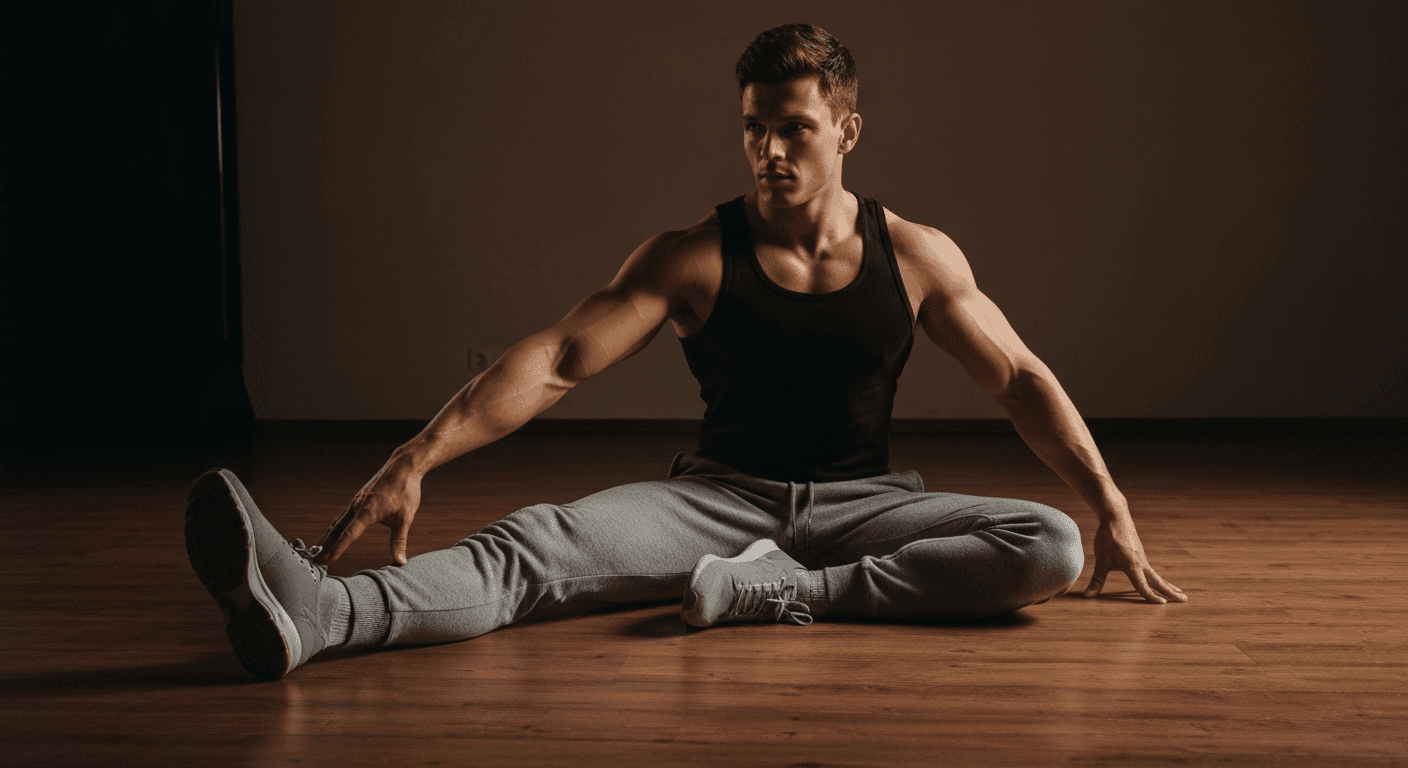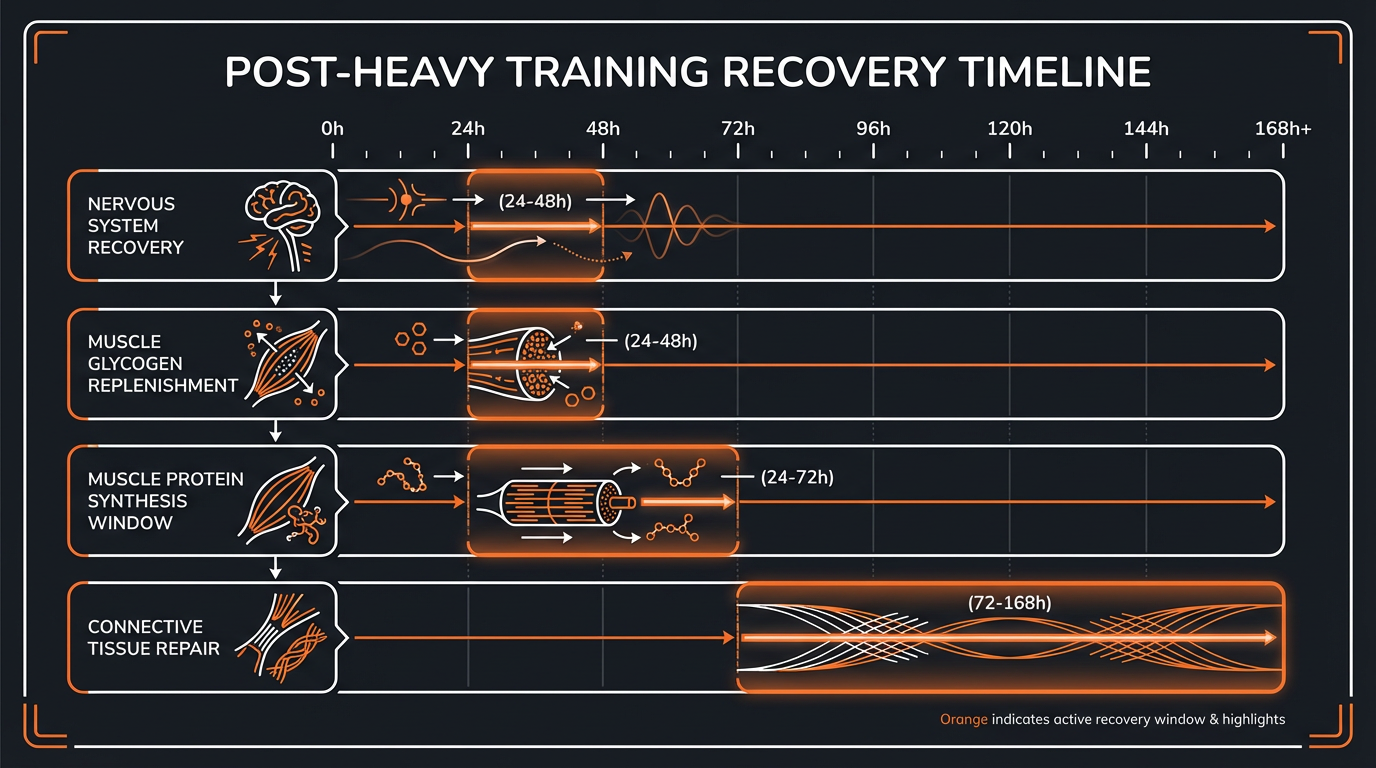Recovery Techniques for Athletes: Optimizing Performance and Preventing Injury
In the dynamic world of sports, recovery techniques play a crucial role in enhancing performance and sidestepping potential setbacks.

Key Takeaways
- Light jogging, swimming, or gentle yoga after workouts helps clear metabolic waste and speeds up muscle recovery better than complete rest.
- Eat protein within 30 minutes post-workout and load up on complex carbs to repair muscles and refuel your glycogen stores.
- Getting 7-9 hours of sleep every night is when your body does most of its muscle growth and tissue repair work.
- Regular massage therapy reduces muscle soreness and gets you back in the gym faster by improving blood flow and reducing tension.
- Compression gear and cryotherapy can cut down inflammation and muscle fatigue if you want to invest in recovery tech.
Get a Free AI Coach on WhatsApp
Ask questions, get workout plans, and track your progress — all from WhatsApp.
Message Your CoachAthletes often face the dual challenge of improving their skills while ensuring their bodies can withstand the demands of intense training. Effective recovery strategies are essential for maintaining peak performance and avoiding injuries.
The Importance of Active Recovery
Active recovery is a method that involves low-intensity exercises to help the muscles recover post-workout. This technique speeds up the removal of metabolic waste products and replenishes oxygen levels in the muscles (source). Some examples of active recovery include:
- •Light jogging or walking
- •Swimming or cycling at a leisurely pace
- •Gentle yoga or stretching sessions
Using these activities can help reduce muscle soreness, improve circulation, and facilitate faster muscle recovery, thereby optimising performance and preventing injury.

The Role of Proper Nutrition and Hydration
Nutrition is a critical element of any athlete's recovery plan. Consuming the right nutrients at the right time can significantly enhance muscle repair and energy replenishment (source). Post-exercise, focus on having a balanced meal that includes:
- •Consuming a protein-rich meal within 30 minutes of exercising
- •Replenishing glycogen stores with complex carbohydrates
- •Staying hydrated with water and electrolyte-rich drinks
Dehydration can impair performance and slow down recovery. Therefore, monitoring fluid intake is just as important as solid food. According to the American Council on Exercise, athletes should aim to drink 17-20 ounces of water 2-3 hours before exercise and continue hydrating during and after the workout.
Benefits of Adequate Sleep
Sleep is often considered one of the best recovery tools available to athletes. During sleep, the body undergoes numerous repair processes, including muscle growth and tissue repair. Research from the National Sleep Foundation indicates that athletes who get between 7-9 hours of sleep per night experience improved reaction times, better mood, and enhanced focus.
Tips for Better Sleep
- •Create a consistent sleep schedule by going to bed and waking up at the same time every day
- •Avoid screens and blue light exposure at least an hour before bed
- •Keep your sleeping environment dark, cool, and quiet
Prioritising quality sleep is not just beneficial for recovery but also crucial for overall athletic performance.
Incorporating Massage and Physical Therapy
Both massage and physical therapy can play a significant role in an athlete's recovery process. Massage therapy can help reduce muscle tension, promote relaxation, and improve circulation. According to a study reported in the International Journal of Sports Physical Therapy, athletes who receive regular massages can experience reduced muscle soreness and faster recovery times.
For more targeted interventions, physical therapy can address any specific issues related to injuries. Techniques such as dry needling, myofascial release, and joint mobilisation can help mitigate pain and improve mobility (source).
Utilising Technology for Recovery
Modern technology offers advanced solutions like compression garments, cryotherapy, and even mobile apps designed to track recovery metrics. Compression garments can help reduce swelling and muscle fatigue (source), while cryotherapy leverages cold temperatures to decrease inflammation and pain (source).
Recovery-tracking apps can monitor sleep patterns, activity levels, and hydration status, providing valuable insights to optimise recovery strategies. According to a Sports Health report, athletes utilising recovery technology have shown notable improvements in both their short-term recovery and long-term performance.
Conclusion
Incorporating effective recovery techniques is pivotal for success in any athletic endeavour. By understanding and applying methods like active recovery, proper nutrition, adequate sleep, massage, and leveraging technology, athletes can enhance their performance while minimising the risk of injury. Integrating these recovery strategies into a comprehensive training regimen can lead to optimal results and long-term athletic success.
Frequently Asked Questions
- What is the most important recovery technique?
- Sleep. Nothing comes close. Foam rolling, massage guns, ice baths, and compression gear are all marginal compared to consistently getting 7-9 hours of quality sleep. Fix your sleep before spending money on recovery gadgets.
- Do ice baths actually help recovery?
- Ice baths reduce inflammation and perceived soreness, but there's evidence they can blunt muscle growth if used immediately after hypertrophy training. Use them after competitions or hard conditioning days, not after lifting sessions where you want to grow.
- How long should I rest between training the same muscle?
- At least 48 hours for the same muscle group if the session was intense. Most people recover well training each muscle 2-3 times per week. If performance on a muscle group is declining session to session, you need more rest.
- Is stretching before a workout good or bad?
- Static stretching before lifting can temporarily reduce strength by 5-8%. Do dynamic warm-ups (leg swings, arm circles, light sets) before training, and save static stretching for after your workout or on off days.